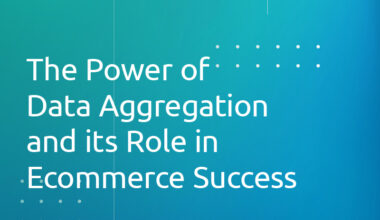In the contemporary e-commerce landscape, data is the new currency. Success in this digital realm is not just about having access to vast amounts of data, but rather, the ability to effectively manage, categorize, and analyze this data to glean actionable insights. This is where data classification comes into play, functioning as the backbone of effective data management and business strategies.
The Role of Data Classification in E-commerce
Data classification involves the organization and categorization of data into various types or classes that share common characteristics. This structured approach to data management aids in the efficient storage, retrieval, and analysis of data.
In the context of e-commerce, data classification might involve categorizing products by type, price, brand, or other attributes, or segmenting customers based on behavior, preferences, or demographics. This structured data then forms the foundation for various e-commerce functionalities and strategies.
The Benefits of Data Classification for E-commerce Businesses
1. Improved User Experience: By classifying product data, businesses can create an intuitive and seamless user interface that allows customers to easily find and compare products, enhancing the overall shopping experience.
2. Personalized Marketing: With customer data segmented into different categories, businesses can target specific customer groups with personalized marketing campaigns, thereby improving conversion rates and customer loyalty.
3. Advanced Analytics: Classified data facilitates sophisticated analytics, enabling businesses to identify trends, predict future behaviors, and make data-driven decisions.
4. Operational Efficiency: Classification of operational data can streamline various business processes, from inventory management and order processing to customer service, making the business more efficient and cost-effective.
Implementing a Data Classification Strategy
The first step to implementing a data classification strategy is to define clear objectives, understanding what you hope to achieve with your classified data. Then, it’s important to thoroughly understand your data before deciding on a classification approach. The approach could be manual, automated using machine learning and AI, or a combination of both.
Data classification is not a one-time task. As businesses evolve and grow, the classification scheme must be regularly reviewed and updated to maintain its effectiveness.
In an era where data-driven decision making is the key to success, e-commerce businesses cannot afford to ignore the value of data classification. With effective data classification, businesses can not only enhance the customer experience but also streamline operations, create personalized marketing strategies, and gain valuable insights for strategic decision making. If implemented correctly, data classification can be a true game-changer for e-commerce businesses.
 1.416.619.5349 Ext.325
1.416.619.5349 Ext.325 







